Pros & Cons Of Using Shopify for Ecommerce Stores
Table of Contents
- What is Shopify?
- How Shopify Works
- Shopify Pros for Ecommerce Store
- Apps
- Shopify Plus
- Inventory Management
- 24/7 Customer Support
- Shopify Marketing Tools
- Ease of Use
- Well-Designed Templates
- No charge for Shopify POS
- Shopify Cons for Ecommerce Store
- Shopify Pricing
- Custom Limits
- Content Marketing
- Inflexible Exit Strategy
- Conclusion
Shopify is an ecommerce platform that has recently become very popular. With the advent of Shopify Payments, Shopify has made it easy for anyone to sell products online without any experience or coding knowledge. Shopify offers retail businesses an all-in-one solution with mobile point of sales, Shopify Payments, Shopify POS, Shopify Website builder, and data analytics.
It is beginner-friendly both as a website builder and ecommerce platform. Their templates are pixel-perfect. They allow you to manage your customers using Shopify customer relationship manager (CRM). In addition, Shopify offers tools to help you boost your sales – abandoned cart recovery, promotions, discount codes – as well as many other services such as Shopify POS.
There are numerous benefits to choosing a managed ecommerce platform, and Shopify is one of the best solutions on the market.
In this article, we’ll discuss some Shopify pros and cons 2024 and compare them to other Shopify alternatives and ecommerce platforms.
What is Shopify?
Shopify is a web application that allows you to create your online store. It empowers you with a wide range of ‘themes’ that can be customized to suit your branding needs and allows you to sell physical or digital products.
Shopify also has a Buy button, a feature that users can use to purchase products on other online and offline platforms, such as Facebook, Pinterest, Tumblr, Trade Show, etc.
How Shopify Works
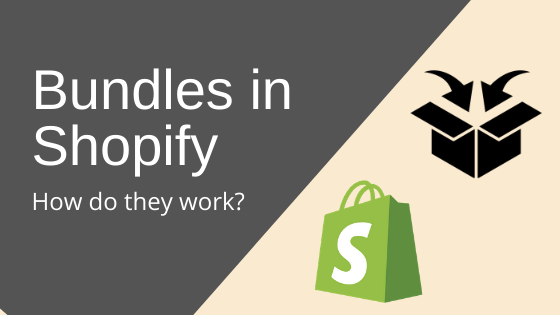
Shopify is fairly easy to use. Here’s how:
1. Choose a Shopify plan according to your budget and required features.
2. Link your business domain to your Shopify store. You can get business domains from sellers like Bluehost, Namecheap, GoDaddy, etc
3. Choose a design or template for your ecommerce store.
4. Include your ecommerce page content, products, payment options, shipping labels, and more.
Shopify Pros for Ecommerce Store
1. Apps
Shopify features an app gallery where third-party developers showcase innovative ecommerce apps designed to expand existing stores’ functionality or offer tools for developing sites. There are a wide variety of Shopify apps available in the store, and they cover a range of tasks from marketing to site management.
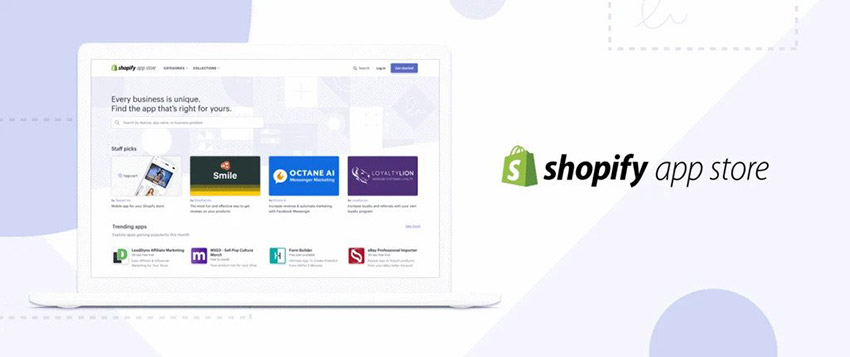
2. Shopify Plus
Shopify Plus: Shopify has recently introduced Shopify plus which is an enhanced, elite version of Shopify for large businesses. Shopify plus is Shopify’s attempt at trying to capture enterprise clients.
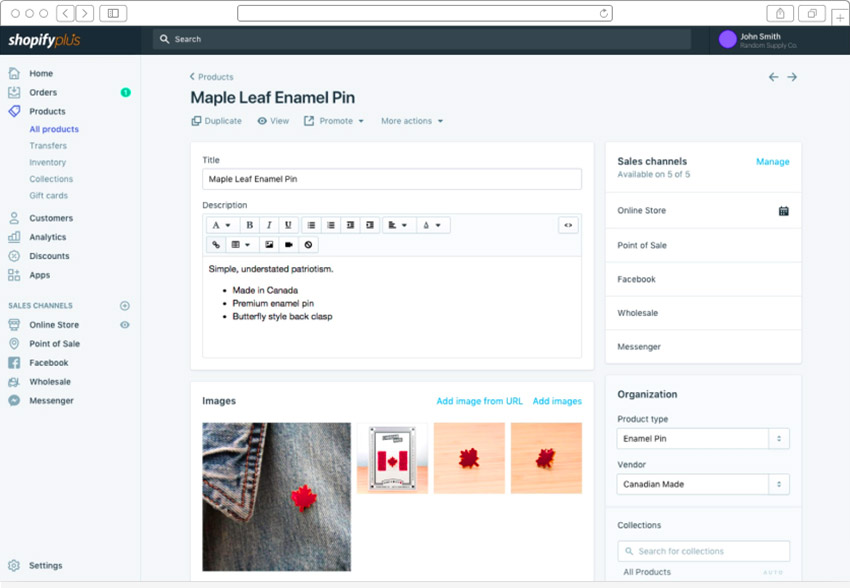
3. Inventory Management
With Shopify, all of your inventory management is done through the app. You’ll never have to worry about uploading products or working with spreadsheets again.
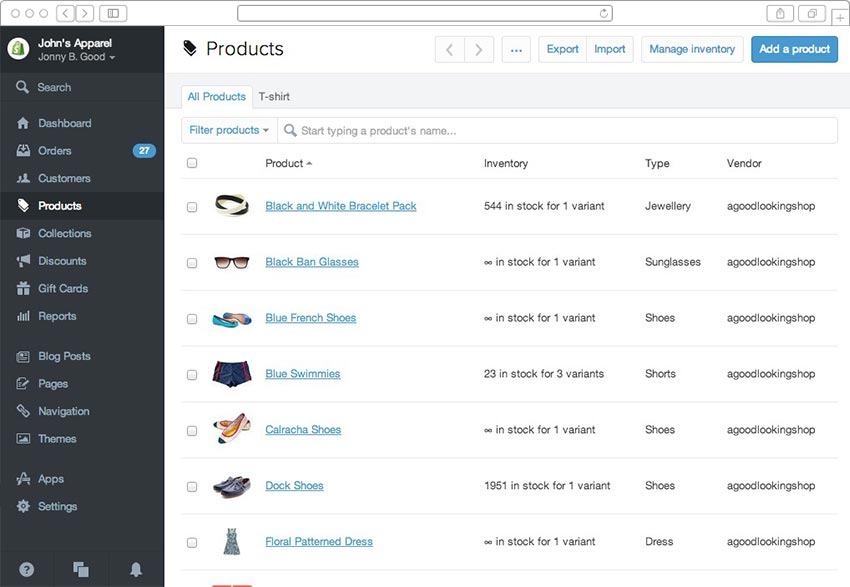
4. 24/7 Customer Support
Shopify customers can reach Shopify support team around the clock through live chat, email, and telephone. The company claims that they always have at least two people working out of their US office to provide top-notch customer support.
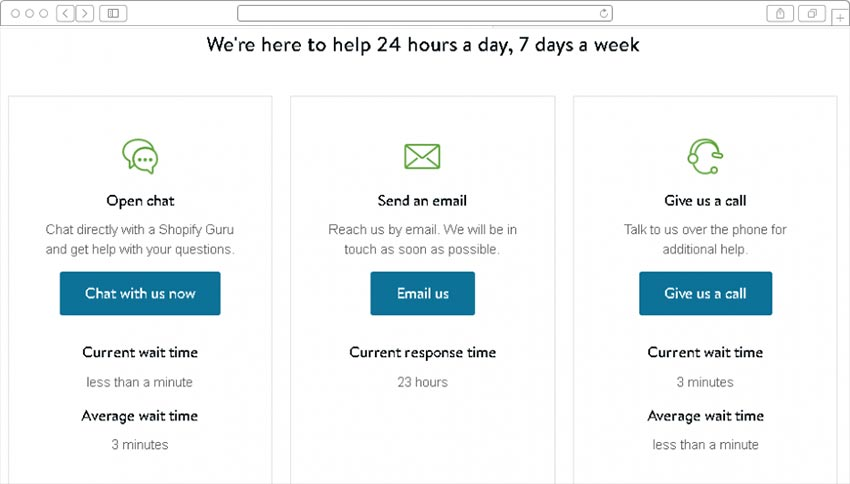
5. Shopify Marketing Tools
It also offers Shopify Marketing tools for Shopify store owners. Shopify has a social media marketing tool. Shopify retargeting is good at targeting specific audiences who have shown interest in your products or similar products on your website.
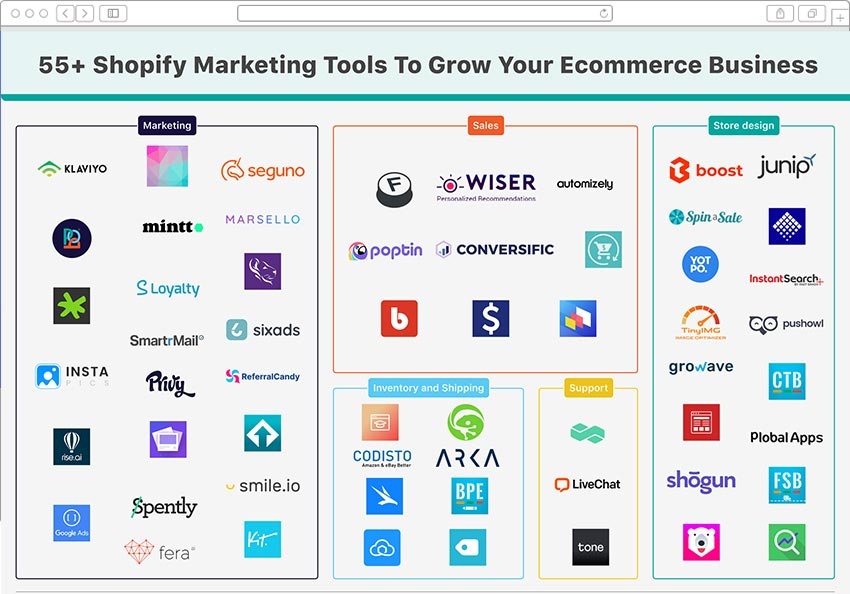
6. Ease of Use
One of the most common definitions of this platform is how easy it is to use. Ultimately you want to focus on running your business. You cannot afford to waste your time dealing with the technical issues of your store.
That being said, if you’re not tech-savvy like everyone else, this is a great platform. There are drag and drop boxes to help you customize and customize your storefront. After using Shopify for a while, you will realize that their focus is on an easy-to-use platform.
7. Well-Designed Templates
Well-Designed Templates: Shopify has one of the best template selections around. With professional themes and customizable options, you’ll be able to create a unique website for your business.
8. No charge for Shopify POS
Shopify comes with Shopify POS which is free and works great! Shopify has a point of sales system that integrates with Shopify website platform, Shopify Mobile App and the Shopify POS System. Shopify POS has an easy checkout process and its app downloads directly to your iphone or android device (optional).
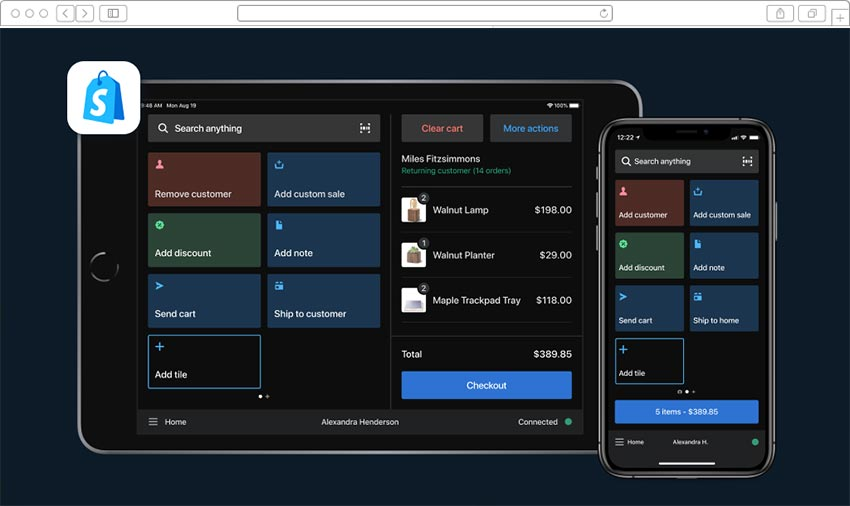
Shopify Cons for Ecommerce Store
1. Shopify Pricing
Let’s get this out of the way, Shopify is not a free platform to use. There is a monthly subscription price. You have to pay for some themes. Their app store has feeds for using certain apps. On top of that, when you sell online there is a transaction fee unless you use Shopify Payments at your store. The only free plan available is their free trial.
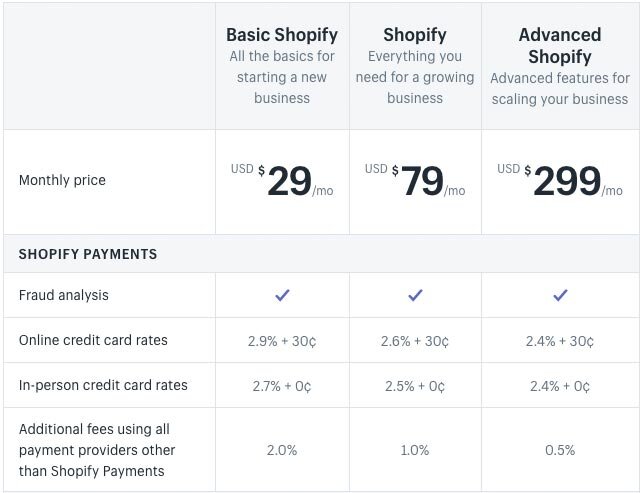
Paying for a place to sell your goods is not a new concept. Even with the fees associated with this platform, it is less expensive than a brick-and-mortar shop.
Think about how many free things you can use in your life? You get what you pay for, and in that case, you get a lot of simple features with Shopify.
2. Custom Limits
Although the platform is very customizable, it has some limitations of Shopify. There are additional features that cannot be strictly unlocked due to the coding setup. Some of the competitors of Shopify offer more customization at the cost of long hours with detailed coding on their platform.
3. Content Marketing
Shopify enables you to run a blog and improve it for SEO, boost organic traffic, build social media integration, and increase brand visibility.
However, the built-in blogging software is not as user-friendly as the functionalities provided by WordPress.
There are areas where Shopify can improve on the blog and content creation feature. These include:
- The editor looks outdated and lacks useful elements like galleries.
- Blog layout is inflexible
- Users should use tags because there is no category.
- Cannot add any related posts
- You cannot embed the product in blogs
You can add some missing features by installing apps related to the Shopify App Store, and you can still use your blog as a subdomain working on an external platform. However, such extensions come with their challenges, which create problems for Shopify ecommerce store owners who want to maximize content marketing space.
4. Inflexible Exit Strategy
Like every other host ecommerce solution like Volusion and BigCommerce, Shopify has a lock-in feature, which limits your ability to move your store to other platforms.
If you have to close your ecommerce store for any reason, Shopify will not make it easy for you to proceed. The only asset or item you can leave out is a CSV report that contains information about your product.
So, if you are thinking long term, you need to consider the many benefits that Shopify offers, vs. your exit strategy.
Conclusion
In this review, we have analyzed the pros and cons of Shopify for ecommerce stores. Shopify is a hosted online platform with comprehensive solutions for online business travel and product sales around the world
Shopify offers marketing tools to take your business to the next level. It’s also highly customizable, and the platform grows alongside you, making it ideal for stores of any size.
We have a team of highly skilled and experienced shopify development agency experts who are familiar with the latest trends, updates and developments in the market.



